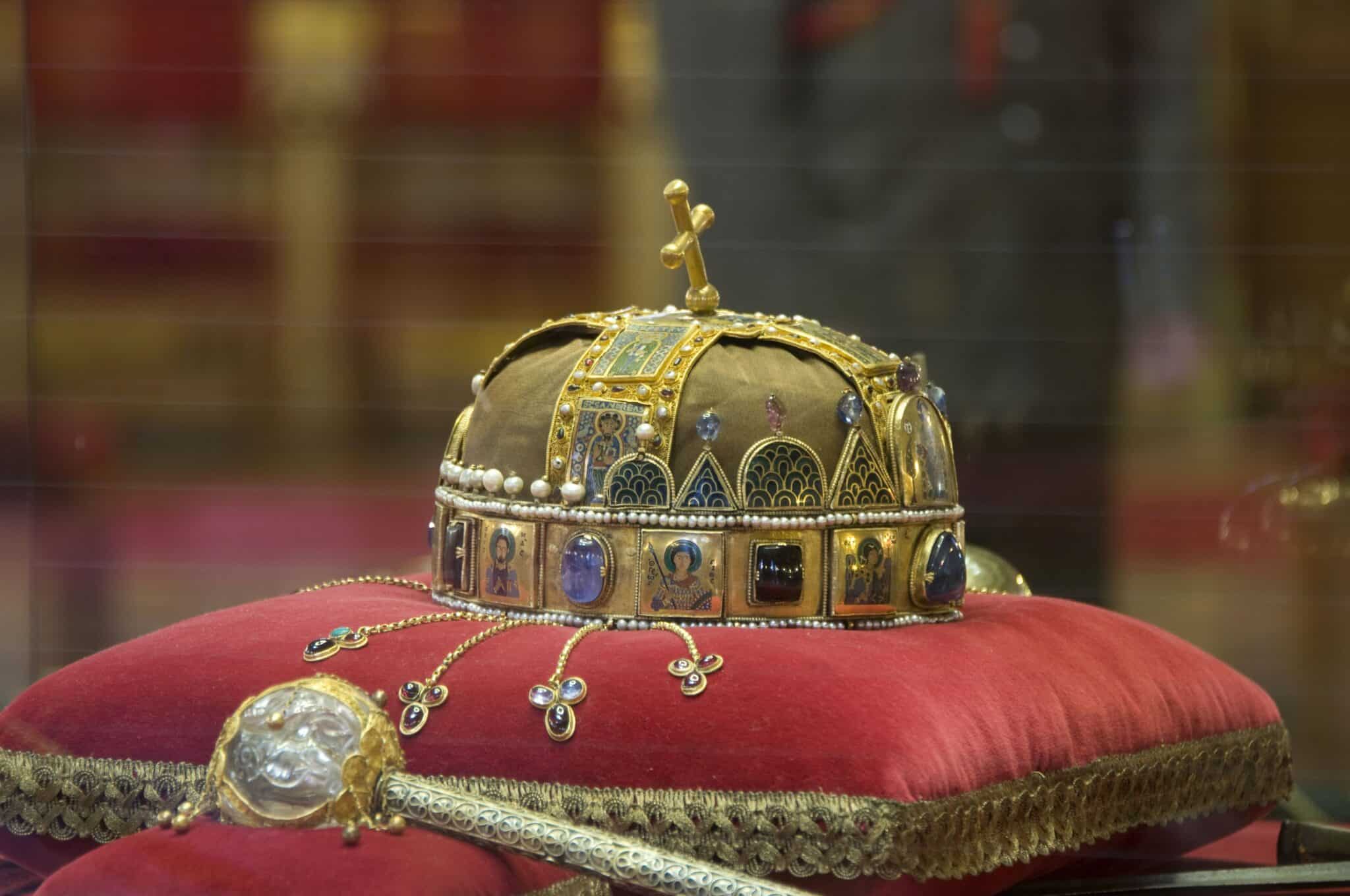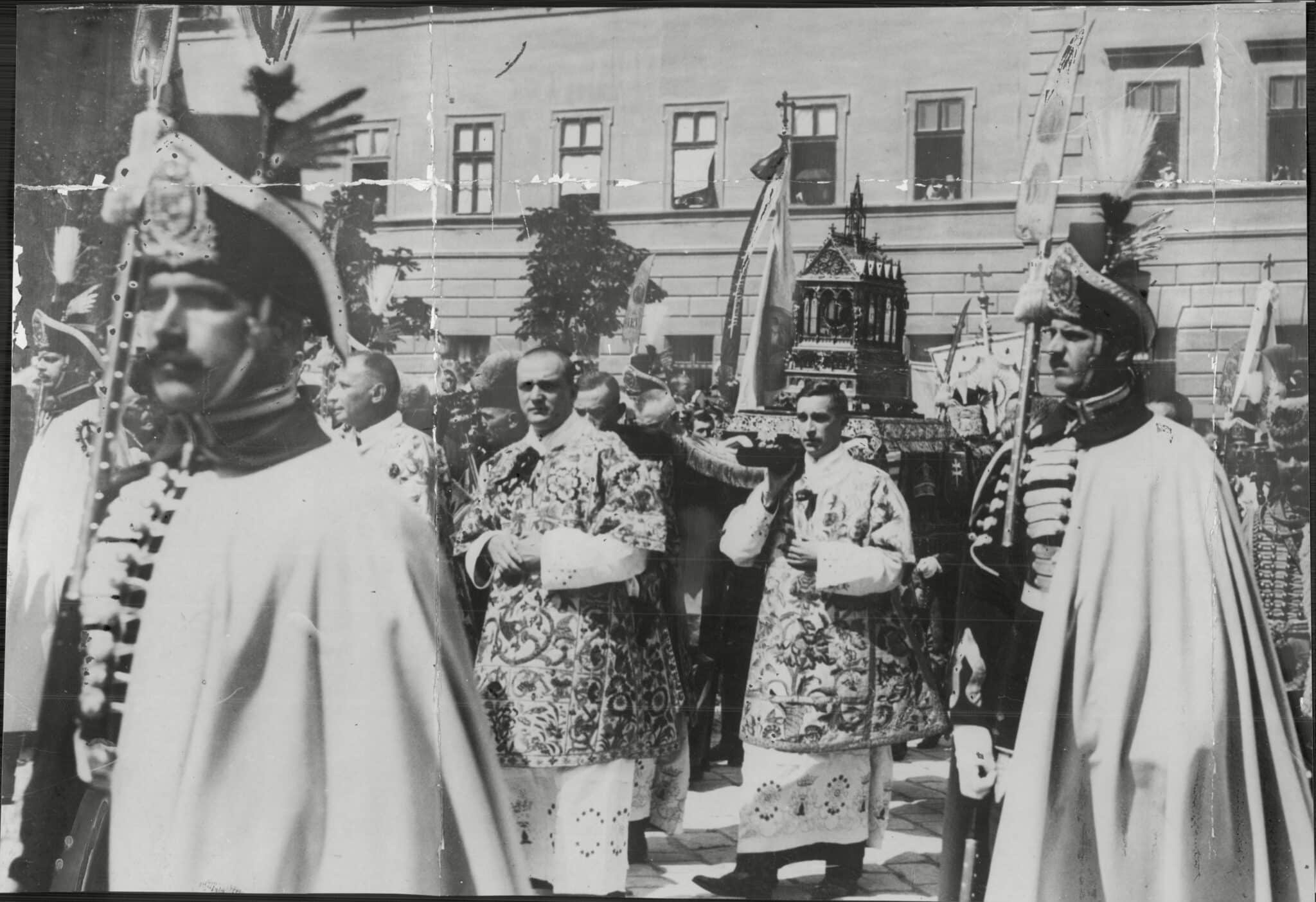On August 20th, what do Hungarians celebrate?
When planning to visit Budapest, Hungary you should aim for the month of August. It is common all over the world that every country has its own national holiday or some important event that attracts attention of both dwellers and strangers.
If you happen to be in Budapest on August 20th, you will see how Hungarians celebrate Constitution Day; one of Hungary’s most important National Holidays.
However, it is not only about this day being dedicated to the nation’s constitution; it is also St. Stephen’s Day, when Hungarians remember their first king. It was King Saint Stephen who laid the foundations and who brought Christianity to the region and to the pagan Magyar tribes, and united them under a strong Hungarian state and Catholicism.
St. Stephen was his Christian name after he converted from his former name Vajk which he got as a pagan baby, born to King Géza of Hungary and Sarolt the daughter of a Transylvanian Hungarian nobleman. By all odds, this second name choice influenced subsequent life of the King quite much if we go by the belief that a person’s destiny can be predicted through their names. The term “Stephen” means “crown” and “standard.”
When Vajk alias Stephen reached adolescence, an assembly was called together by his father and they decided he would be his father’s successor as the Hungarians’ next monarch. This was perhaps the first sign that Vajk was going to bring a change in the lives and ways of the Magyar tribes.
Until then, according to the tribal customs, the right of succession went to the eldest close relative of the ruler. So not too surprisingly, following the death of Stephen’s father in 997, conflict burst out concerning the rightful succession. Stephen and his uncle Koppány, a pagan chieftain, battled for the status and power of Grand Prince of the Hungarians.

The battle was won by Stephen, but it wasn’t solely his own Magyar supporters who helped him to this victory. Stephen had married Giselle of Bavaria, daughter of Henry II The Wrangler just a few years before his father’s death and the German in-laws helped the future king to his pedestal.
His coronation as King of Hungary was in 1000 and his reign lasted for 38 years. During his reign he largely expanded the Hungarian Kingdom and spread Christianity in the Carpathian Basin. In one of his first decrees, for example, he ordered that every ten village had to build a church and he invited foreign priests to Hungary. He also established counties in his kingdom to organize the administration of the country.
He was canonized on the 20th of August 1083, becoming one of the most favoured saints in Hungary. His remaining right hand, preserved whole indicating his saintly nature is called the Holy Right Hand or simply the Saint’ Right Hand. Today it can be viewed at St.Stephen’s Basilica as a relic.
On August the 20th you can experience a widespread and varied series of programs in Budapest. The state programs usually take place in front of the Parliament at Kossuth Square and at Heroes Square. The Hungarian flag is hoisted, generally marching bands play, there are archery shows, dances, traditional Hungarian crafts workshops, ox and poultry roasted on open fires.

Other festivals take place along and above the Danube. One of the most spectacular ones is the water and air parade. While the fireworks light the summer night skies, various dances tell the story of how Hungary was founded.
DID YOU KNOW?
The Crown of St Stephen was recovered after missing for decades by US soldiers at the end of World War II. It was hidden in an oil drum. It was kept safe at a Ft. Knox vault for 32 years before being returned to Hungary in 1978 by President Jimmy Carter. Today it can be seen in the Hungarian parliament in Budapest.
Vocabulary
| to aim for | megcélozni, célul kitűzni |
| common | közös |
| national holiday | nemzeti ünnep |
| to attract | vonzani |
| to happen to | történetesen (csinálni valamit) |
| however | azonban |
| to be dedicated to | valminek szentelve lenni |
| to lay the foundations | lefektetni valaminek az alapjait |
| Christianity | kereszténység |
| pagan | pogány |
| tribe | törzs |
| to convert | megtéríteni, áttérni valamilyen hitre |
| Transylvanian | erdélyi |
| nobleman | nemesember |
| by all odds | minden nehézség ellenére |
| to influence | befolyásolni, hatással lenni |
| subsequent | későbbi |
| destiny | sors, végzet |
| to be predicted | megjósolva lenni |
| assembly | gyűlés |
| successor | utód |
| the right of succession | az utódlás joga |
| no too surprisingly | nem túl meglepő módon |
| to burst out | (valamiben) kitörni |
| rightful | jogos |
| chieftain | törzsfőnök |
| solely | kizárólag |
| supporter | támogató |
| coronation | koronázás |
| reign | uralkodás |
| to expand | terjeszkedni |
| decree | rendelet, dekrétum |
| to establish | létrehozni, megalapítani |
| to be canonized | szentté avatni |


